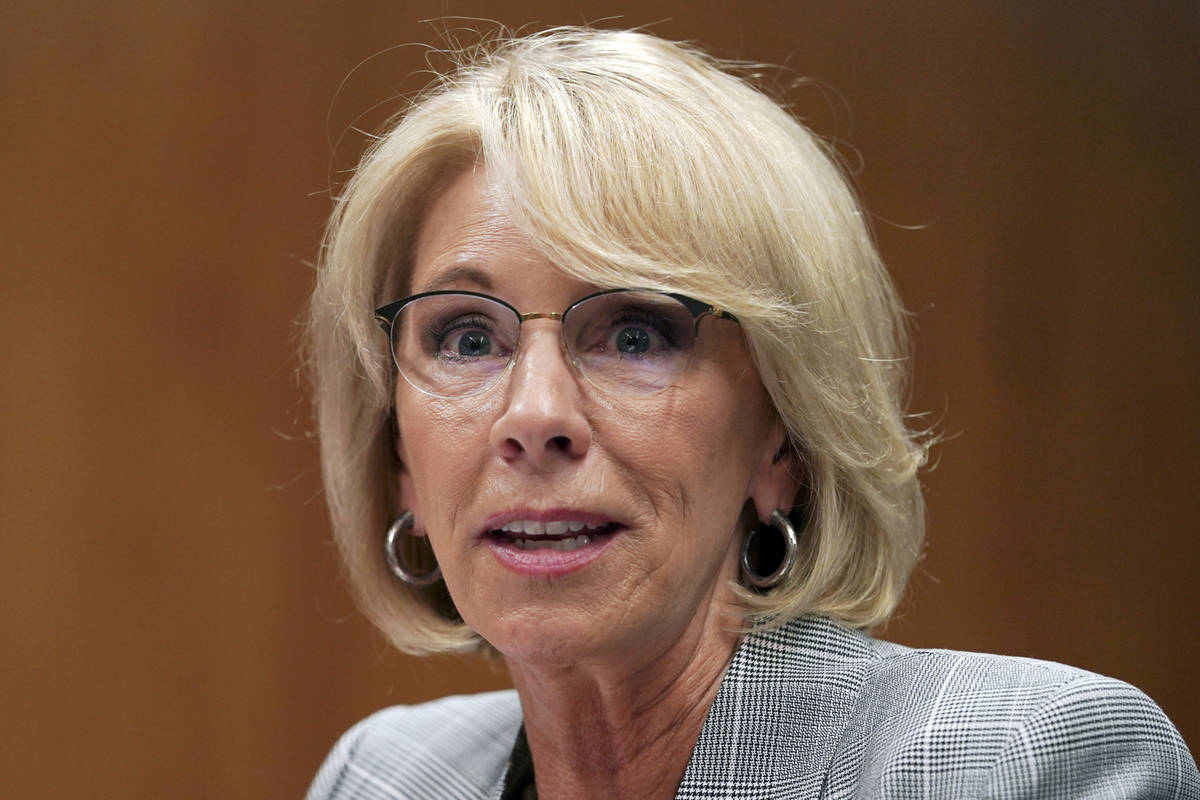EDITORIAL: Nation’s Report Card delayed
The Clark County School District announced last week that it had reached a deal with the local teachers union to open schools. Except there remains no timetable to actually bring most students back to the classroom.
Also last week, President-elect Joe Biden took the “bold” step of telling a group of governors that he wants the nation’s schools to reopen within his first 100 days of taking office. That could mean early May — fully 14 months after most campuses were closed to in-person learning because of the pandemic.
In the meantime, the students — particularly those in disadvantaged neighborhoods — pay the price.
“In high-poverty schools,” USA Today reported last week, “1 in 3 teachers report their students are significantly less prepared for grade-level work this year compared with last year, according to a report by the RAND Corporation, a nonprofit research institution.”
Jimmy Sarakatsannis, leader of education practice at consulting firm McKinsey and Company, told the paper that the average student could fall up to nine months behind by June. “This is not going to be a problem that goes away as soon as the pandemic is over,” he said. Districts, it appears, are ill-equipped to bridge the difference. “At the moment,” USA Today noted, “plans to help students catch up are largely evolving, thin or nonexistent.”
To make matters, worse, the nation’s schools won’t be getting their report cards next year.
Last month, Secretary of Education Betsy DeVos recommended postponing the National Assessment of Educational Progress that was scheduled for next year. The agency overseeing the test, known as the Nation’s Report Card, agreed to the delay. It’s usually conducted every other year and provides fourth- and eighth-grade scores in reading and math for each state.
More than 5,000 schools were going to participate in next year’s test. Due to coronavirus concerns, Ms. DeVos said many of them weren’t willing to do so. Local officials even prohibited some schools from conducting the tests, she said. This lack of participation led education officials to conclude that the data was unlikely to produce useful results.
But measuring the academic deficiencies created by the pandemic is vital to addressing the problem. The federal government sends billions of dollars each year to states for education. Officials should have found a way to make districts participate in such a basic accountability exercise. It appears that many local districts — and the unions that dominate them — aren’t eager to document the massive failures of distance learning.
“The 2021 NAEP tests would have shed light on the significant learning loss following the school closures last spring and the widespread failure to reopen schools this fall,” Ms. DeVos wrote in a letter to Rep. Robert Scott, D-Va., who chairs the House Committee on Education and Labor.
Providing information like this is one of the reasons the Nation’s Report Card exists. Some states fully reopened their schools after the summer. In some places, such as in the Clark County School District, schools are doing only virtual learning. The Nation’s Report Card would have provided hard data showing what worked and what didn’t. Indirectly, it would have shown how well individual states and school districts responded to the coronavirus.
Tests done by individual states can have some value, but they also have limitations. It’s difficult to make an apples-to-apples comparison between states. It can also be hard to gauge how much students are learning over time in the same state. If students do too poorly on a test, special-interest groups, such as the teachers unions, can successfully lobby politicians to change it.
This happened in Nevada. The Legislature eliminated the high school proficiency exams for students graduating in the 2016-17 school year. Nevada’s graduation rate jumped from 73.6 percent to 80.9 percent after students no longer had to pass the test to receive a diploma. Lower standards may produce higher graduation rates, but they’re unlikely to increase student achievement.
Ms. DeVos said the department plans on giving the test in 2022, but who knows what a Biden administration will do. Information gleaned from these exams is vital to measuring the extent of the damage done by school closures. Delays serve only to conceal the problem. The tests should be conducted as soon as possible.

















